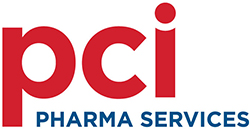Pharmaceutical outsourcing is undergoing a profound transformation. Once a transactional solution to capacity constraints, contract development and manufacturing organisations (CDMOs) are now integral partners in drug development strategy.
This shift has been driven by the complexity of modern pipelines. Biologics, targeted small molecules, and advanced injectables such as GLP-1 receptor agonists demand specialised containment, formulation, and device integration capabilities that few sponsors maintain in-house. Outsourcing has become a lever for speed, resilience, and access to multidisciplinary expertise.
Patient-centric delivery formats are another catalyst. Prefilled syringes, autoinjectors, and on-body systems are reshaping expectations around usability and convenience. Meeting those expectations requires a marriage of pharmaceutical precision and engineering excellence, placing CDMOs at the intersection of science and product experience.
Policy trends are reinforcing that reliance. Onshoring initiatives, including the US BioSecure Act, are pushing the industry toward regionally redundant manufacturing and shorter, more transparent supply chains. At the same time, economic pressure is favouring partners that can combine flexibility with scale, offering early-phase intimacy and late-stage industrial strength within a single, harmonised network.
Emerging modalities bring further complexity. Targeted protein degraders (TPDs), molecular glues, and sterile injectable medicines promise new therapeutic frontiers but come with challenges in potency, stability, and manufacturability. Success depends on CDMOs that can pair containment readiness with advanced formulation and analytical capabilities, enabling accelerated development without compromising safety or quality.
Across the sector, digital infrastructure is also becoming a differentiator. Real-time visibility into materials, capacity, and performance data shortens decision cycles and improves risk management — replacing fragmented communication with genuine transparency between sponsor and partner.
Ultimately, the defining qualities of the modern CDMO are agility, integration, and trust. The organisations that thrive will be those that anticipate technological shifts, invest ahead of demand, and treat quality as a shared responsibility. In doing so, they help ensure that innovation in the lab translates swiftly and safely to impact in the clinic.
Meet us at CPhI Worldwide 2025
PCI Pharma Services will be exhibiting at Hall 5.1, Stand C58, where our team will be available to discuss the future of outsourcing, patient-centric delivery, and emerging drug modalities.
Don’t miss our expert session, Bioavailability enhancement strategies for targeted protein degraders, presented by David O’Connell, PCI’s Director of Scientific Affairs, on Thursday, October 30th at 1:15 pm in Hall 4.1 L8.
The session will explore how advanced formulation technologies are overcoming the bioavailability barriers limiting oral targeted protein degraders, and how an integrated CDMO model can reduce hand-offs and accelerate speed to clinic.
We look forward to connecting in Frankfurt and continuing the conversation about how collaborative innovation is shaping the next decade of pharmaceutical development.

